At Domaine Rouge-Bleu, an organic vineyard nestled in the sun-drenched Côtes du Rhône region of southern France, the autumnal grape harvest, or les vendanges, is a time-honoured tradition where backbreaking work is steeped in camaraderie. This is a powerful, immersive experience that attracts those eager to move beyond the wine bar and gain a deep, hands-on education in viticulture and viniculture. By trading sore muscles and farmer tans for sweat, dirt, and grape juice, volunteers find immense gratification in accomplishing a collective goal. The repetitive, rhythmic nature of the work—snip, haul, repeat—offers a meditative solace for those seeking a break from the complexities of freelance or corporate life. Ultimately, this journey in the Rhône Valley reinforces the French wine-making adage that there is a profound sense of shared mission and deep philosophy in every bottle produced by communal effort.
The Vintage Setting: Côtes Du Rhône’s Rouge-Bleu
Domaine Rouge-Bleu is a working organic vineyard located in Sainte-Cécile-les-Vignes, a small, quiet town slightly off the beaten track in Provence, France.
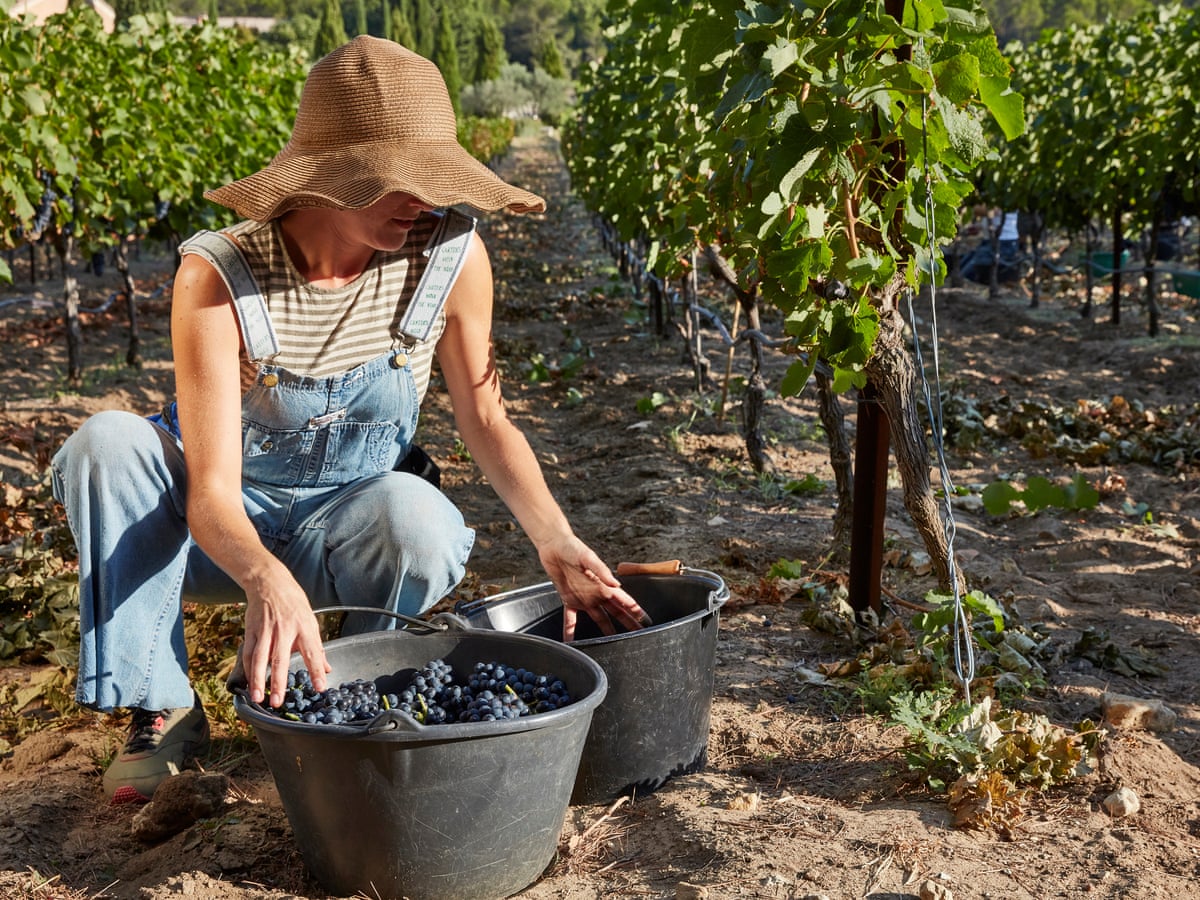
The picturesque, flat landscape is blanketed with vast grids of vineyards, with Mont Ventoux, the famed Tour de France mountain, looming majestically in the distance. The vineyard is owned by the French-Australian couple, Thomas Bertrand and Caroline Jones, who run the operation from a charming 17th-century farmhouse. Although machines are available and efficient, Rouge-Bleu opts for the traditional vendanges à la main (hand-picked harvests), a practice still maintained by 30–40% of French wineries. This method is preferred because it ensures the highest quality—only good grapes are selected, intact and free of machine oil—allowing for a pure expression of the wine. Volunteers, who arrive from various countries, are essential for keeping costs down and maintaining this labour-intensive tradition, reinforcing the communal heritage of French winemaking.
The Daily Grind: Sweat, Dirt, And Camaraderie
The daily work of the vendangeurs (harvesters) is physically demanding, requiring both stamina and a strong team spirit, especially when battling the heat and the famous, sanity-testing mistral wind.
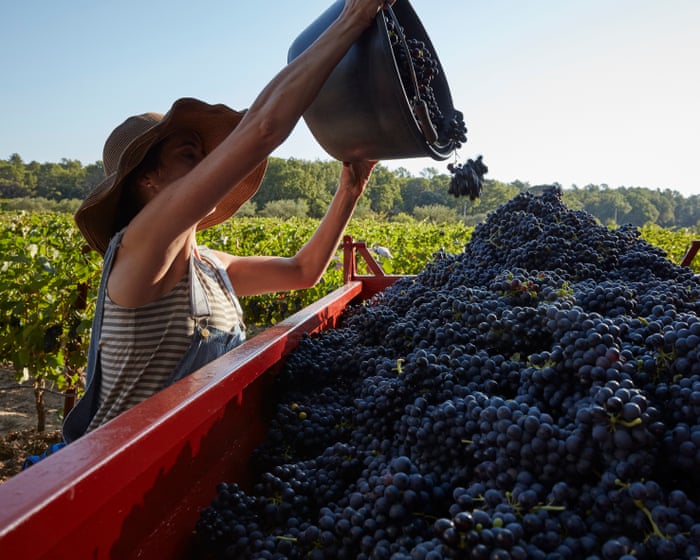
The 16-person team gathers before 7 AM each morning, donning work clothes and thick socks under boots to protect against the thorny environment. Thomas’s first rule is to be gentle, ensuring the grapes are not bruised or broken prematurely, which causes oxidation and negatively affects the final wine. The work is constant: snipping bunches for eight hours a day, watching out for mildew, and being perpetually covered in sticky grape juice. The constant ache in the back and muscles is combated by the human element of the work. Harvesters work in pairs, the thick vines acting as “confessional screens” that encourage intimate conversations. This unexpected sociability—where profound stories of breakups or corporate escapes are shared—becomes a vital antidote to the demanding physical labour, reinforcing the feeling that they are all united by a shared, rewarding mission.
Viticulture Lessons: From Terroir To Tank
The seemingly monotonous choreography of snip, haul, repeat is broken up by the varied terrain and the practical, on-the-ground lessons in viticulture and terroir—the soil, climate, and sunlight that defines the grape’s character.
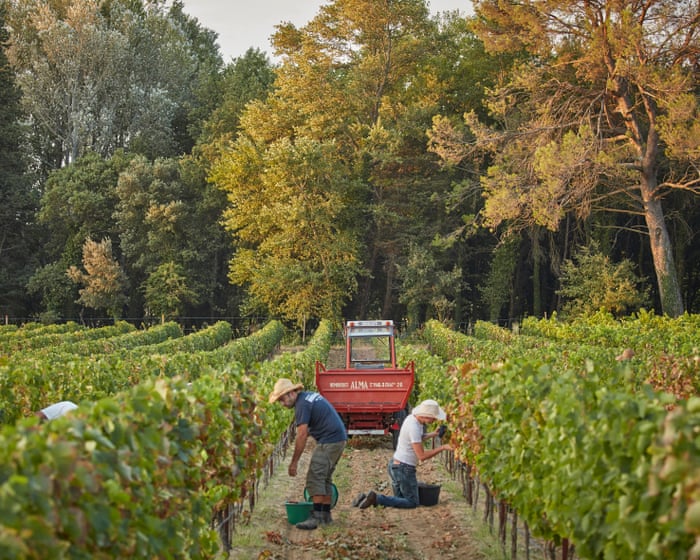
The author receives a crash course on Rouge-Bleu’s 12 hectares, which are planted with 21 grape varietals. The 115-year-old Grenache vines, for instance, are planted in an ancient riverbed littered with large, white, heat-retaining galets (stones). While these stones help the Grenache reach peak ripeness, the uneven ground makes for torturous picking. In contrast, the trellised Syrah vines are easier to harvest. Once the grapes are picked, the work shifts to the winery, where the volunteers engage in a different kind of workout: shovelling grape bunches into the tank, loading the press, and even climbing in to stomp out the last drops of juice. Learning technical details, such as keeping the stems on certain grapes to prevent heat buildup and “jammy flavours” during fermentation, deepens the appreciation for the final bottled product.
Convivial Dining: The Culture Of Sharing
A highlight of the harvest—and a key element in restoring energy and team spirit—is the nightly ritual of gathering around the farmhouse table for communal meals.
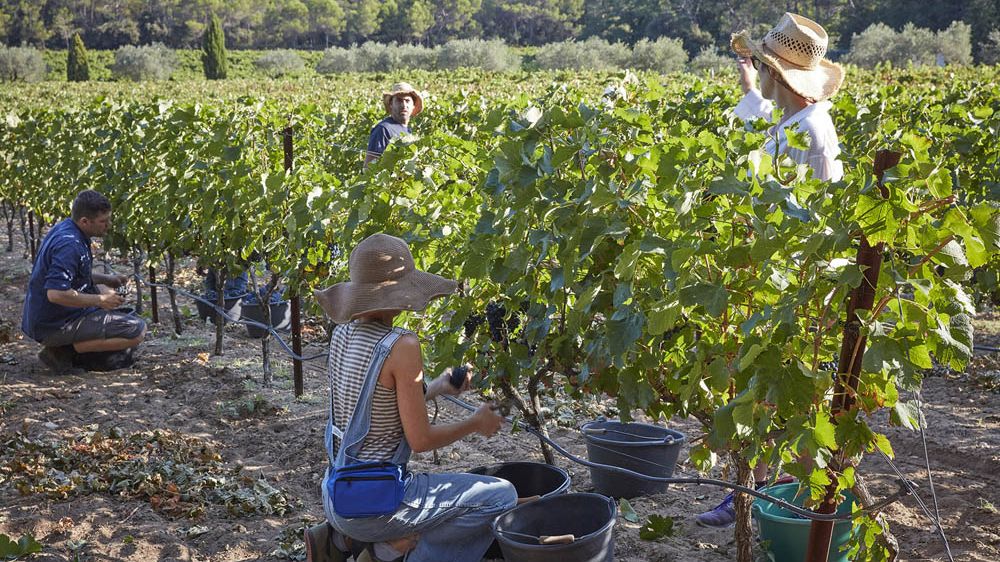
The drudgery of the day is often toasted away with craft beers, a nod to the common adage that “It takes a lot of beer to make good wine.” Each night, a different harvester takes on kitchen duty, preparing a meal of their choice, often focusing on calorie-replenishing dishes like lasagne, grilled sausages, or curry. Naturally, these celebratory meals are paired with Domaine Rouge-Bleu’s own bottles, ranging from their crisp white Dentelle to the richly flavoured Lunatique. For the wine-curious, nights conclude with vertical tastings—sampling the same wine from different years—which teaches them how age intensifies and deepens the flavours. These convivial moments reinforce the belief that winemaking is fundamentally about sharing and creating lasting memories.
The Enduring Philosophy Of Wine
The hands-on involvement in the grape harvest provides a lasting philosophical takeaway that extends far beyond the temporary soreness and stained fingernails.
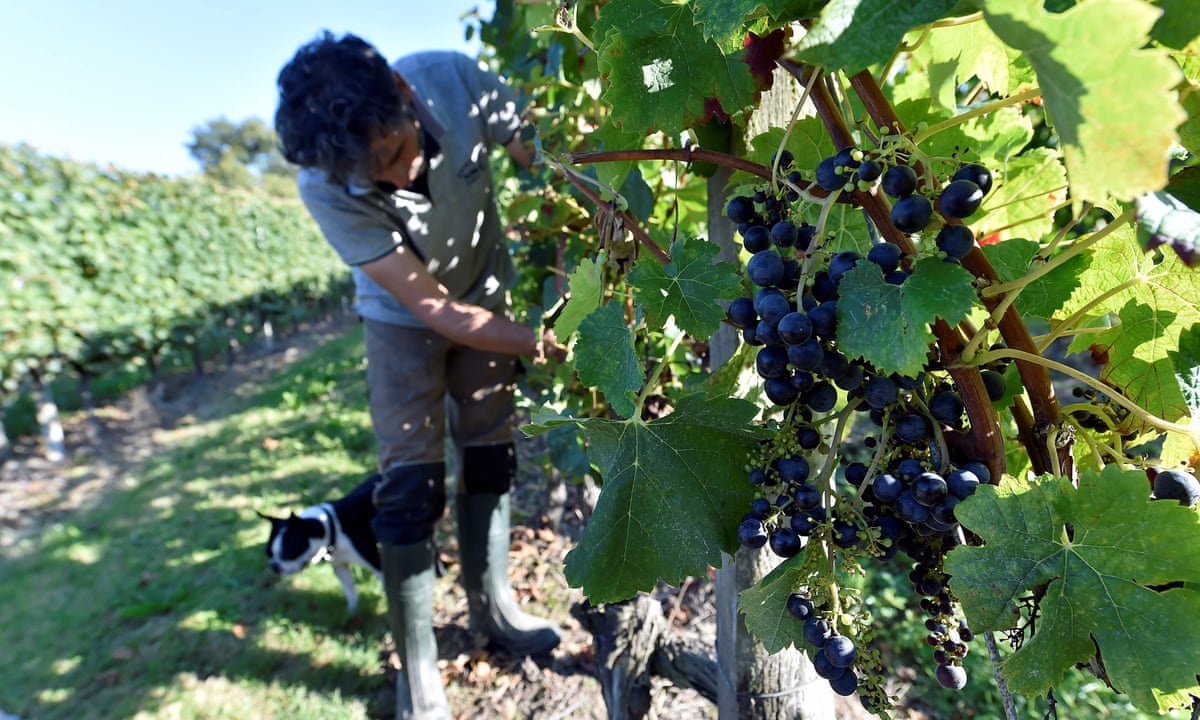
For the author, the repetition of the work offered a welcome mental break from the need to constantly manage and seek out freelance work, providing a simple, goal-oriented choreography that was immensely satisfying. A fellow harvester remarked that the experience was “about as useful a thing a person could do.” The entire process, from pruning to picking to pressing, creates an enduring connection to the land and the people involved. Every time the author drinks wine now, they “taste its people, its place, its story.” The full circle of the experience transforms the abstract concept of wine into a tangible product of collective human effort and nature, underscoring the timeless truth of Louis Pasteur’s observation: “There is more philosophy in a bottle of wine than in all the books in the world.”




